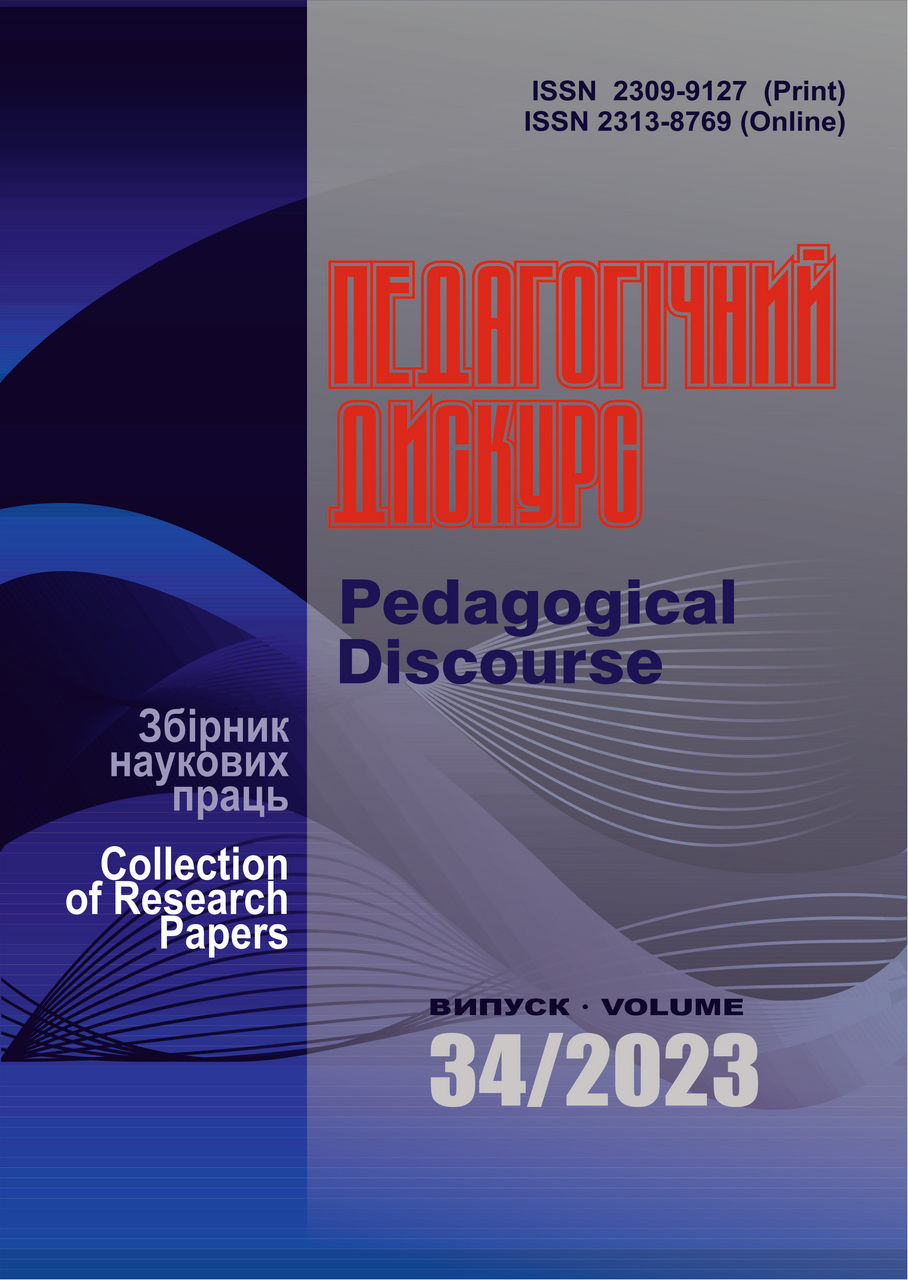Alexander Neill’s «Summerhill» School as an Example of Successful Extrapolation of Psychoanalytic Theory into Pedagogical Practice
Abstract
The article explicates the experience of successful extrapolation of psychoanalytic theory into pedagogical practice using the example of Alexander Neill’s «Summerhill» free education school. It is argued that the basis of A. Neill’s concept of education are psychoanalytical concepts, namely: classical psychoanalysis of S. Freud, individual psychology of A. Adler, character analysis and body-oriented therapy of W. Reich, humanistic psychoanalysis of E. Fromm. It was established that A. Neill managed to integrate the leading humanistic ideas of the psychoanalytic movement, enriching pedagogical theory and practice and expanding the influence of psychoanalysis on interdisciplinary research. The main principles of A. Neill’s educational system, its general (basic) and special characteristics are clarified.
The article traces A. Neill’s pedagogical progress, the evolution of his ideas from the first free education schools «Hellerau» in Dresden to the world-famous «Summerhill» school. Special attention is focused on the peculiarities of the activity of the «Summerhill» school. The organizational foundations of school functioning; approximate daily/weekly schedule; the basic principles of the education system at school; the organizational structure; the role of a teacher in the school education system; peculiarities of the educational process; positive results and achievements of the school education system, contradictions in the «Summerhill» school education system and its criticism are demonstrated.
It has been proved that the essence of A. Neill’s concept of free education consists in giving children the freedom of emotional development, the right to independent organization of their lives, the possibility of natural development, ensuring a happy childhood by eliminating fear and pressure from adults. It is shown that the «Summerhill» school represents an interesting and innovative model of the organization of education and upbringing, which is based on the principles of freedom and self-governance and has its advantages and disadvantages, which require further research and discussion.
Downloads
References
Ayers, W. (2003). On the Side of the Child: Summerhill Revisited. New York: Teachers College Press, 149 р. [in English].
Bailey, R. (2013). A. S. Neill. London: Bloomsbury, 216 р. [in English].
Barrow, R. (1978). Radical education: a critique of freeschooling and deschooling. London: Martin Robertson, 207 p. [in English].
Cremin, L. (1978). «The free school movement: a perspective». Alternative Schools: Ideologies, Realities, Guidelines. Chicago: Nelson-Hall, 204–282. [in English].
Croall, J. (1983). Neill of Summerhill: The permanent rebel. New York: Pantheon Books, 436 p. [in English].
Ferriere, A. (1950). L’autonomie des ecoliers dans les communautes d’enfants. Neuchatel/Paris: Delachaux & Niestle, 152 p. [in French].
Hart, H. (1970). Summerhill: for and against. New York: Hart Publishing Company, 271 p. [in English].
Hemmings, R. (1973). Children’s freedom: A. S. Neill and the evolution of the Summerhill idea. New York: Schocken Books, 218 p. [in English].
Isaacs, S. (1933). Social development in young children. London: Routlede. 492 p. [in English].
Neill, A. (1920). A Dominie in doubt. London: Herbert Jenkins, 256 p. [in English].
Neill, A. (1922a). A Dominie abroad. London: Herbert Jenkins, 256 p. [in English].
Neill, A. (1922b). Education in Germany. The New Era, № 3, 32-33. [in English].
Neill, A. (1926). The problem child. London: Jenkins. 255 p. [in English].
Neill, A. (1932). The problem parent. London: Jenkins. 256 p. [in English].
Neill, A. (1937). That dreadful school. London: Jenkins. 156 p. [in English].
Neill, A. (1939). The problem teacher. London: Jenkins. 192 p. [in English].
Neill, A. (1945). Hearts not heads in school. London: Jenkins, 164 p. [in English].
Neill, A. (1949). The problem family. London: Jenkins. 158 p. [in English].
Neill, A. (1953). The free child. London: Jenkins. 178 p. [in English].
Neill, A. (1960). A radical approach to child rearing. (Preface by E. Fromm.) New York: Hart Publishing Co. [in English].
Neill, A. (1966). Freedom, not license! New York: Hart Publishing Co. 192 p. [in English].
Neill, A. (1972). Neill! Neill! Orange Peel! New York: Hart Publishing Company. 538 p. [in English].
Placzek, B. (1981). A Record of Friendship: The Correspondence Between Wilhelm Reich and A S. Neill 1936–1957. New York: Farrar, Straus and Giroux, 429 p. [in English].
Purdy, B. (1997). A. S. Neill: Bringing Happiness to Some Few Children. Bramcote Hills: Educational Heretics Press. 78 p. [in English].
Vaughan, M. (2006). Summerhill and A. S. Neill. Maidenhead: Open University Press, 166 p. [in English].
Vertel, A. (2022a). Classification of child development stages in psychoanalytic pedagogy (on the example of Sigmund Freud’s classical psychoanalysis). Pedagogical sciences: theory, history, innovative technologies, № 7–8 (121–122), 23–33. [in English].
Vertel, A. (2022b). The concept of upbringing in the context of individual psychology of Alfred Adler. Pedagogical sciences: theory, history, innovative technologies, № 9–10 (123–124), 13–25. [in English].
Vertel, A. (2023). The concept of «New man» and «New society» in humanistic psychoanalysis of Erich Fromm through the prism of psychoanalytic pedagogy. Quality of Life in Global and Local Contexts: Values, Innovation, and Multidisciplinary Dimensions. Monograph. Scientific editors: Nestorenko T., Pokusa T. Opole: The Academy of Applied Sciences – Academy of Management and Administration in Opole, 443–453. [in English].
Vertel, A. (2024). Sexual education in Wilhelm Reich’s psychoanalytic pedagogy. Actual problems of pedagogical education development: innovations, challenges, prospects: proceedings of the International scientific-practical conference (15 March 2024, Mukachevo). Mukachevo: Publising House of MSU, 175–176. [in English].
Waks, L. (1975). «Freedom and desire in the Summerhill philosophy of education». The Philosophy of Open Education. London: Routledge, 144–154. [in English].
Copyright (c) 2023 Pedagogical Discourse

This work is licensed under a Creative Commons Attribution-NonCommercial-ShareAlike 4.0 International License.

















